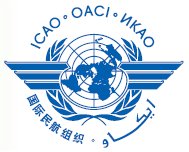Eruption of Eyjafjalla Volcano in Iceland - ICAO System Effective in Ensuring the Safety of Air Transport

The International Airways Volcano Watch (IAVW) system, established by ICAO in coordination with the World Meteorological Organization (WMO), proved effective in ensuring the safety of air transport following the eruption of the volcano Eyjafjalla in Iceland on 14 April 2010.
No incidents or accidents have been reported due to volcanic ash. Disruptions in air traffic, however, are being experienced in the United Kingdom and Scandinavia.
Since volcanic ash is composed of very abrasive silica materials, it can damage the airframe and flight surfaces, clog different systems, abrade cockpit windows and flame-out jet engines constituting a serious safety hazard. Volcanic ash can also have a serious effect on aerodromes located downwind of a volcanic ash plume since it contaminates runways, ground equipment and aircraft parked or taxiing around the aerodrome.
The IAVW system is designed to detect and track the movement of volcanic ash in the atmosphere and to warn aircraft in flight about this hazard. The main components of the system are comprised of nine volcanic ash advisory centres responsible for the provision of information related to areas and flight levels affected by volcanic ash and its future movement. These centres are strategically distributed around the globe. They are Anchorage, Buenos Aires, Darwin, London, Montreal, Tokyo, Toulouse, Washington and Wellington. Another important component of the system is the role of area control centres of each State to warn aircraft in flight about the location of the volcanic ash. They work together with selected State Volcano Observatories and the corresponding MET watch offices that are tasked with disseminating the corresponding warnings which are called SIGMETs.
ICAO, together with the States concerned, is closely monitoring this important safety concern.





.png)


.jpg)


Comments
There are no comments yet for this item
Join the discussion